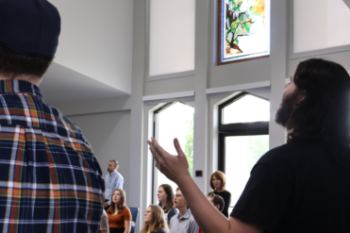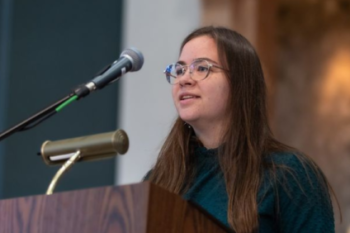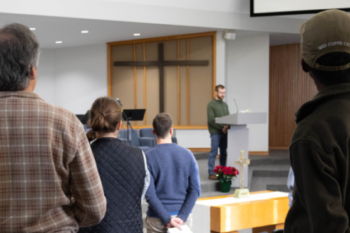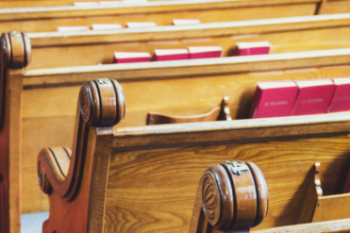Advent: A Time to Pay Attention
In the last few decades, several global realities have been reminders of the possibility of end times. The threat of nuclear war, COVID-19, global warming, and the effects of the rising seas are threatening life on earth. The world’s leading climate scientists who met last month in Glasgow delivered a “code red” warning if the industrial countries of the world do not limit global warming to 1.5 degrees Celsius.
Such threats and dire warnings are crucial, but they cannot be used to determine God’s end of time. That will come at God’s time. The Gospel of Luke can offer us some valuable ways to frame it.
The first reading of Advent, Luke 21:25-36, is a continuation of the apocalyptic prediction of the fall of the temple and Jerusalem (21:5). The signs there could have been local and regional but now in this passage, the sun, moon and stars will demonstrate signs of cosmic significance. The signs are not restricted to any one nation or regional power. They will come to all and cannot be escaped even by those who venture into space exploration.
Entire nations, rich and poor, will be in a state of anxiety. Fear will grow because of what is happening with the seas and oceans, because of its roaring and the sound of its surf. People will be so distressed they will faint with fear.
Yet in Luke 21:27, we get a surprise shift of hope. Instead of destruction, the Son of Man approaches in a cloud with power and great glory. Here are key words that allude to divine power and the coming of the Messiah (the incarnation). The focus shifts away from the fate of those who are ashamed of Jesus Christ to the hope that awaits those disciples who have been unwavering in their faith. What seemed to be a destruction turns out to be their redemption drawing near.
To clarify his point further, Jesus draws a lesson from the experienced world of nature. In the small parable of the fig tree, Jesus directs his followers and Luke’s readers to pay attention to God’s eschatological clues with the same vigor they pay to seasonal indicators in nature. For a moment, it seems as though there is a way to anticipate the sudden coming of God’s reign after all. But in Luke 21:33, Jesus eliminates that possibility. Now Jesus explains that no one except God will know the hour of his return as the Son of Man. If you try to look for the signs there won’t be time to prepare, because the event itself will be so close behind. That is why we must get ready now and remain ready all the time.
That time will come at any moment. The primary call is to be a faithful watcher for his appearance. The point is not to calculate when best to be ready but to be faithful right through the long night of watching. This is a calling of active behavior, where a disciple is called to watch, to act, to preach the universal reality of God’s reign. With the constant watch comes the call to pray for the strength to endure temptation that will come from persecution (21:36).
When all seems lost, we are not the furthest from our liberation but closer to it.
In this biblical passage, Jesus is talking about the eschaton or the reality of the end time, but not the end of life with God. Sometimes we get taken by the signs as though they are isolated events in history and independent from God. They derive all their significance from God. Therefore, we need to see them in relation to what God is doing. God is in charge of both the end time and of all time. As humans, we are called to trust God for the future. For it is God alone who comes to us at the end of time. The eschaton should be regarded as the time of fulfillment of all of God’s promises. Just as God sets a limit to the power that evil can have, God sets a limit on all injustices and sin as well. Their days are numbered. Only those dependent on God will endure the pressure of the interim period. Meanwhile we watch and pray until he returns.
Finally, whether we contemplate the eschaton or just the end of our own personal days, it is wise to keep the wonderful message of the Gospel. When we think life is too hard and we cannot cope another day, when all seems lost as many have experienced during COVID-19, when the suffering of others continues unabated, we are not the furthest from our liberation but closer to it. Christ may always be found in the midst of the greatest need. Look up, not down, for your deliverance is drawing near.
Dr. Samuel “Kip” Elolia is the Professor of Christian Theology and World Christianity at Emmanuel Christian Seminary at Milligan. View Emmanuel’s Academic Programs page here.





